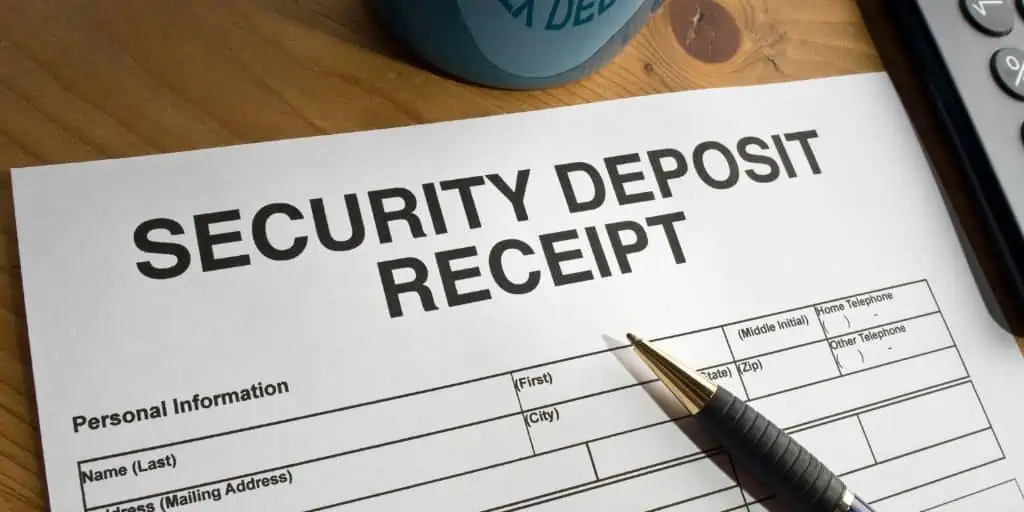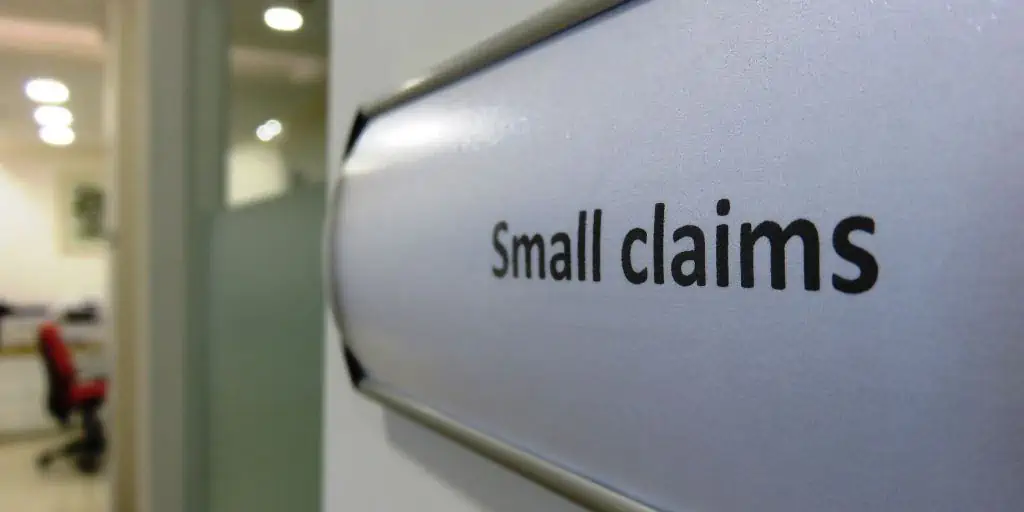What Is a Security Deposit?
REtipster does not provide tax, investment, or financial advice. Always seek the help of a licensed financial professional before taking action.
How Do Security Deposits Work?
Tenants usually pay their security deposit upon signing the rental agreement. The landlord will hold the money until the tenant moves out[1], upon which the landlord may:
Use the security deposit to pay for damages to the property outside of regular wear and tear; or
Return a portion or all of the security deposit to the tenant within a fixed period.
Note that these are not mutually exclusive; the landlord may use the security deposit to repair property damage, and they may also return the balance of the deposit (if any).
Each state has its own rules on security deposits. For example, some states require the landlord to keep the security deposit in a separate bank account, preventing them from using it for personal purposes[2]. In any case, the lease agreement must state specific situations in which a landlord can keep all or part of the deposit.
Generally, such reasons cover the following expenses[3]:
- Unpaid rent.
- Late fees.
- Utility costs and other unpaid bills.
- Cleaning and repair for property damage that exceeds normal wear and tear, i.e., damage due to accident or neglect. Examples include broken and shattered windows, oil stains on the carpet, broken door handles and hinges, or cracked bathroom tiles.
- Breach of lease terms and/or if the tenant leaves before the lease ends.
A landlord must provide a tenant with an itemized list of the expenses deducted from the security deposit. The landlord must also show receipts and proof that the repairs have been completed[4]. If any balance is left on the deposit after all these repairs have been deducted, the landlord must return it to the tenant.
RELATED: The Beginner’s Guide to Buying Rental Properties (A Case Study)
Typical Security Deposit Charges
States have differing laws on how much a landlord can charge for a security deposit. In some states, the security deposit is equivalent to one month’s rent. In such states, they do not allow landlords to charge a security deposit greater than a month’s rent[5].
However, in other states, security deposits may reach as much as three months’ worth of rent[6], although there is still a limit on how much the landlord can charge for a security deposit.
How Are Security Deposits Calculated?
Landlords consider several factors when deciding how much to charge for the security deposit. These include[7]:
- State, county, or municipal laws regarding security deposits.
- The monthly rent. Typically, the security deposit is equal to one or two times the monthly rental charge.
- The type and quality of the rental property. Some landlords will charge a security deposit greater than one month’s rent if the rental property has premium facilities and other conveniences.
- The security deposits of similar and nearby properties. To attract tenants, most landlords collect security deposits in the same range or lower than other competitive properties.
- The credit score, history, and background of the prospective tenant. The landlord looks at the tenant’s history and references to determine if they can pay rent in full and on time each month.
BY THE NUMBERS: 88% of renters in the U.S. pay a security deposit, and the average security deposit amount is $700 to $1,400.
Source: Zillow
When Are Security Deposits Returned?
Again, the rules governing the return of security deposits vary by state. However, there is usually a fixed period when the landlord must do so.
Some states mandate 14 days after the lease ends, while some within 30 to 60 days after the tenant moves out of the rental property. In addition, some states allow tenants to sue landlords who do not return security deposits on time or at least subject them to fines and penalties[8].
Can a Security Deposit Be Used as a Final Month’s Rent?
Generally, a security deposit should not be used as payment for last month’s rent; it is meant to be returned to the tenant at the end of the lease agreement.
Some landlords, however, allow the tenant to use the security deposit as the final rent payment[9]. In this case, the security deposit is considered rental income. This means the landlord cannot use the security deposit to pay for any rental property damage caused by the tenant.
RELATED: How Does Prorated Rent Work?
Disputing Claims on Security Deposits
A tenant may dispute the landlord’s claims if they feel that the security deposit was withheld or misused. The tenant may also sue the landlord in a small claims court if the landlord fails to return the security deposit or account for any deductions[10].
To avoid problems over security deposits, the landlord and the tenant usually require a complete inspection of the rental property. This is usually done before the tenant moves in and out of the property. This way, both parties can document any defects and damage before, during, and after the lease agreement.
BY THE NUMBERS: In the U.S., an estimate of over $45 billion is locked up in cash security deposits.
Source: Bloomberg
Takeaways
- A security deposit is a fee that a landlord collects from a tenant to guarantee the good condition of the rental property. The landlord may use it to pay for property damage the tenant has caused that exceeds regular wear and tear.
- States have varying rules on security deposits, such as where and how a landlord keeps the deposit, when to return it, and how much to charge.
- In general, security deposits cannot be used as a final month’s rent, but in cases where the landlord does agree, it is considered rental income and therefore cannot be used to cover for property damage caused by the tenant.
Sources
- Chen, J. (2021.) Security Deposit. Investopedia. Retrieved from https://www.investopedia.com/terms/s/security-deposit.asp
- Collatz, A. (2018.) What You Need to Know About Tenant Security Deposits. SmartMove. Retrieved from https://www.mysmartmove.com/SmartMove/blog/what-landlords-need-know-about-security-deposits.page
- Rocket Lawyer. (2017.) 10 reasons why you aren’t getting your security deposit back. Retrieved from https://www.rocketlawyer.com/real-estate/tenants/communicate-with-your-landlord/legal-guide/10-reasons-why-you-arent-getting-your-security-deposit-back
- Fitzpatrick, D. (n.d.) Security Deposit Cases in Small Claims Court. Nolo. Retrieved from https://www.nolo.com/legal-encyclopedia/free-books/small-claims-book/chapter20-2.html
- iPropertyManagement. (n.d.) Security Deposit Law. Retrieved from https://ipropertymanagement.com/laws/security-deposits
- Eberlin, E. (2019.) Security Deposit Limits by State. The Balance Small Business. Retrieved from https://www.thebalancesmb.com/security-deposit-limits-by-state-2125089
- Mastroeni, T. (2020.) How Much Should a Security Deposit Be? A Guide for Landlords. Millionacres. Retrieved from https://www.millionacres.com/real-estate-investing/rental-properties/how-much-should-security-deposit-be-guide-landlords/
- LegalNature. (n.d.) How long does the landlord have to return a security deposit? Retrieved from https://www.legalnature.com/guides/how-long-does-the-landlord-have-to-return-a-security-deposit
- Neumann, K. (2017.) Can You Use Your Security Deposit as Last Month’s Rent? Find the Answer Here. Realtor.com. Retrieved from https://www.realtor.com/advice/rent/can-you-use-security-deposit-as-last-months-rent/
- DeLoe, R. (2020.) Small Claims Court: How To Get Your Security Deposit Back. LegalZoom. Retrieved from https://www.legalzoom.com/articles/small-claims-court-how-to-get-your-security-deposit-back











